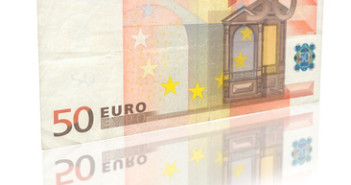EUR/USD continues to push higher, buoyed by speculation that the ECB will set a cap on bond yields. However, market sentiment could quickly shift over worries about a “manageable†exit by Greece as the Greek PM holds crucial debt talks with European leaders later in the week. There are no scheduled economic releases out of the Euro-zone or the US today.
Here’s an update about technical lines, fundamental indicators and sentiment regarding EUR/USD.
EUR/USD Technical
- Asian session: Euro/dollar rose to 1.2378, and consolidated at 1.2375. In the European session, the pair continues to move upwards, and has crossed above the 1.24 line.
- Current range: 1.24 to 1.2440.
Further levels in both directions:Â Â Â 
- Below: 1.24, 1.2360, 1.2330, 1.2250, 1.22, 1.2144, 1.2043, 1.20, 1.1876 and 1.17.
- Above: 1.2440, 1.2520, 1.2623, 1.2670, 1.2743 and 1.2814.
- Note that the pair enjoys uptrend support – it started in mid-July and the pair bounced off this line.
- The pair is testing the 1.24 line.
- 1.2330, a historical line, is strong support.
Euro/Dollar buoyed by yield cap talk – click on the graph to enlarge.
EUR/USD Fundamentals
- 12:00 FOMC Member Dennis Lockhart Speaks.
For more events and lines, see the EUR/USD
EUR/USD Sentiment
- Speculation continues over ECB cap on yields: The markets are abuzz over a report in Der Spiegel that the ECB intends to cap peripheral Euro-zone bond yields. After Spain finally submits its request (still awaited for more than two weeks), the ECB will buy bonds en masse, and will defend a preset yield like the SNB defends the EUR/CHF floor. Such a strong commitment will likely calm investors, as long as the ECB doesn’t have seniority. For its part, the ECB dismissed the Der Spiegel article, calling it “absolutely misleadingâ€. Whether or not the ECB is denial is plausible or not, the euro is up and Spanish bond yields are down.
-
Greek PM Begins Critical Tour: Greece successfully raised funds last week and avoided a default on the August 20th deadline. However, Greece is still in deep trouble. Prime Minister Antonis Samaras wants an extension until 2016 to meet the bailout targets, while Germany and Greek creditors object to giving Greece more time and more money. Samaras will meet Juncker, Hollande and Merkel in an important week for Greece and the Euro-zone. In the meantime, talks about a manageable Grexit are surfacing: this time from the ECB’s Jörg Assmussen, that echoed Eurogroup chief Juncker. Talks with the troika will continue in September. Greek Finance Minister Yannis Stournaras stated that the government was considering presenting the troika with an austerity plan with spending cuts of some 11.5 billion euros. See
how to trade the Grexit with EUR/USD. - Merkel pledges support for euro: German Chancellor Angela Merkel reiterated her call to do “everything†to save the euro. She also provided her support for the ECB’s proposal to buy the bonds of struggling countries, after some German politicians wanted to intervene in the central bank’s actions and / or change the voting rules there, in objection to the planned QE blitz. In the meantime, Germany still enjoyed nice growth in Q2, but business sentiment has falling.
- Mixed signals continue in the US: There is a distinct difference between the struggling manufacturing sector (as seen in the NY and Philly indices) and the housing sector, which continues to surprise. Retail sales came out better than expected and jobless claims remain at relatively low levels. Uncertainty continues over QE in the US, as speculation over possible Fed intervention refuses to go away. Boston Federal Reserve President Eric Rosengren recently declared that the Fed should implement QE3 in order to help the troubled US economy. The fear of deflation triggered QE2. Deflation isn’t here yet, but the recent slide in inflation gives fuel to the QE3 camp. Fed Chairman Bernanke did his best to pour more cold water on QE intervention, calling it a program of “diminshing returnsâ€.



